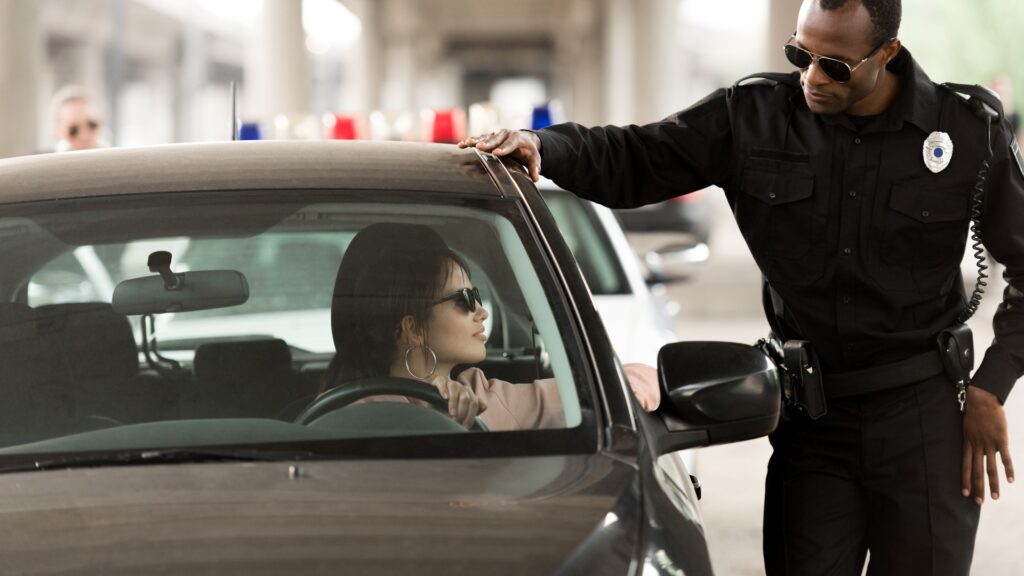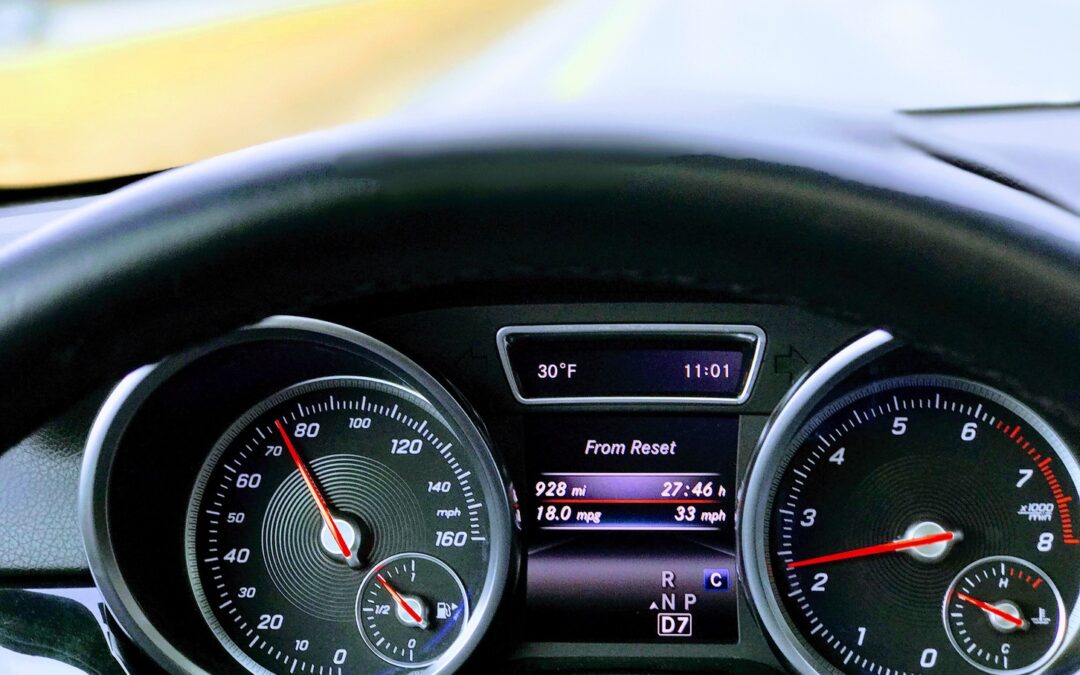Georgia’s traffic laws are designed not only to maintain road safety but also to hold drivers accountable when they engage in risky behavior. One law that has garnered significant attention is the so-called “Super Speeder” law. This blog post will explore what the law entails, how it affects drivers charged with high-speed offenses, and the potential impact it can have on accident cases. Whether you’re a driver, an accident victim, or simply someone interested in Georgia’s legal landscape, this guide aims to provide you with a thorough and accurate understanding of the topic. (Please note: This post is for informational purposes only and should not be taken as legal advice. For personalized legal guidance, consult a qualified attorney.)
Background of Georgia’s Super Speeder Law
Georgia’s “Super Speeder” law is a legislative measure aimed at deterring extremely high-speed driving. In recent years, the state has seen an increase in traffic fatalities and severe injuries related to speeding, prompting lawmakers to introduce measures that go beyond standard speeding fines.
Legislative Intent and History
The law was enacted with the goal of targeting drivers who consistently exceed safe speed limits, thereby posing a significant risk not only to themselves but to everyone on the road. Legislators recognized that while typical speeding tickets serve as a deterrent for most drivers, they were not enough for those engaging in truly excessive speeding. The “Super Speeder” law was thus designed to impose additional financial penalties on drivers who drive at dangerously high speeds.
Historically, similar laws have been introduced in various states, but Georgia’s approach was tailored to address the specific challenges faced by its roadways. Lawmakers intended for the surcharge to function as both a punitive measure and a means to fund public safety initiatives. By imposing an extra fee on top of standard fines, the state aimed to recoup some of the costs associated with traffic enforcement and accident-related expenses.
How the Law Works
At its core, the Georgia “Super Speeder” law mandates that any driver convicted of a speeding offense over a certain threshold must pay an additional surcharge. Although the exact triggering speeds can vary depending on the zone and posted limits, the law generally targets drivers who are significantly over the speed limit. For instance, if a driver is caught speeding at rates well beyond what is considered safe—even by Georgia’s standards—they may be subject to this extra financial penalty.
This surcharge is separate from the standard fines, court fees, and potential points that might be added to a driver’s license. The idea is to create a layered system of consequences where the financial impact is substantially higher for those engaging in dangerous driving behaviors. In many ways, the law is as much about deterrence as it is about revenue generation for road safety programs.
Key Provisions of the Super Speeder Law
Understanding the mechanics of the “Super Speeder” law requires a closer look at its key components. The law is structured to ensure that drivers who engage in extreme speeding are financially penalized, which in turn may influence how accident cases are viewed in legal proceedings.
Speed Thresholds and Applicability
The law targets speeding offenses that exceed a specific threshold. While the exact number may vary with different jurisdictions within Georgia, the common thread is that the law applies only to those drivers whose speeds are not just above the limit, but excessively so. For example, a driver caught going only a few miles over the limit might face a standard speeding ticket, whereas one who is driving at a speed that is 20 mph or more over the limit could be classified under the “Super Speeder” provision.
This distinction is crucial because it recognizes that not all speeding violations are equal. The law aims to single out those drivers who have chosen to engage in behavior that could lead to catastrophic consequences. In this context, the surcharge is not merely an additional fee; it is a marker of particularly egregious behavior.
Calculation of the Surcharge
Once a driver is convicted under the Super Speeder statute, the surcharge is typically set at a fixed amount—often around $200. However, it’s important to understand that this fee is in addition to any other penalties that might be levied for the speeding offense. The surcharge does not replace traditional fines or points; rather, it compounds the financial burden on the driver.
For many, the additional surcharge serves as a stark financial reminder of the risks associated with high-speed driving. It also reinforces the idea that the state will not hesitate to impose severe penalties on those who engage in behavior that endangers public safety.
Relationship to Other Traffic Violations
An essential aspect of the Super Speeder law is its relationship with other traffic violations. The surcharge is applied solely based on the speed at which the driver was traveling—it does not necessarily depend on whether the speeding resulted in an accident. However, when an accident does occur, the presence of a Super Speeder charge can complicate the legal landscape considerably.
For instance, in an accident case, evidence that a driver was not only speeding but was doing so at a rate that triggers the Super Speeder surcharge can be used by opposing counsel to argue that the driver was grossly negligent. This can influence the determination of liability and the severity of damages awarded in civil litigation.
The Impact on Accident Cases
One of the most significant consequences of the Super Speeder law is its potential effect on accident cases. The law’s additional financial penalty can have ramifications that extend far beyond the immediate speeding offense.
Influence on Liability Determinations
In civil litigation following a traffic accident, one of the critical issues is determining liability. When a driver is charged under the Super Speeder law, it can serve as evidence of reckless or grossly negligent behavior. This may sway a jury’s or judge’s opinion regarding the driver’s responsibility for the accident.
Defense attorneys might argue that the surcharge is merely an administrative fee and does not, in itself, prove negligence. However, prosecutors and plaintiffs often contend that the very fact a driver incurred a Super Speeder penalty indicates a level of recklessness that contributed to the accident. As a result, the surcharge can become a significant point of contention in both personal injury and wrongful death cases.
Effects on Insurance Claims and Settlements
Insurance companies are always on the lookout for indicators of high-risk behavior. A conviction under the Super Speeder law can signal that a driver is more likely to engage in dangerous driving practices, which can lead to increased premiums or even policy cancellations. In accident cases, this additional charge can complicate insurance negotiations, as insurers may argue that the surcharge is evidence of an increased risk profile.
For accident victims seeking compensation, the presence of a Super Speeder charge may strengthen their claim that the driver’s conduct was particularly negligent. Conversely, a driver facing both the surcharge and an accident lawsuit may find that their legal and financial liabilities are compounded, making settlement negotiations more challenging.
Intersection with Comparative Negligence
Georgia follows a modified comparative negligence system in personal injury cases. This means that if an accident victim is found to be partially at fault for the accident, their compensation can be reduced by the percentage of their fault. A Super Speeder charge can influence how fault is apportioned in these cases.
For instance, if a defendant is found to have been driving at an excessively high speed as defined by the Super Speeder law, it can be argued that their behavior significantly contributed to the accident. This evidence can shift the comparative negligence analysis, potentially reducing the victim’s compensation further if they are found to have any degree of fault—or, conversely, increasing the liability of the speeding driver.

Legal Implications and Defense Strategies
Given the far-reaching consequences of a Super Speeder charge, it is important for drivers and legal professionals alike to understand the legal implications and available defense strategies. This section delves into how attorneys might challenge a Super Speeder charge and what drivers can do if they find themselves facing such penalties.
Contesting the Speeding Charge
One common defense strategy is to challenge the evidence that led to the speeding charge. In many cases, the prosecution’s case rests on radar or laser readings. If an attorney can demonstrate that the equipment was improperly calibrated or that the officer’s handling of the device was flawed, it may be possible to reduce or even dismiss the charge.
Additionally, challenging the methodology used to determine the speed—such as discrepancies in the timing or distance measurements. Can sometimes create reasonable doubt about whether the driver’s speed truly exceeded the threshold that triggers the Super Speeder surcharge.
Mitigating Penalties in Accident Cases
In accident cases where a Super Speeder charge is present, defense attorneys may seek to mitigate the impact of the surcharge on liability determinations. One strategy is to argue that while the driver was speeding, other factors (such as road conditions, vehicle malfunctions, or actions by other drivers) contributed significantly to the accident.
By introducing evidence of contributory negligence on the part of the victim or other parties involved, attorneys can attempt to lessen the weight that the Super Speeder charge carries in court. This approach, however, requires a thorough investigation and a nuanced understanding of both traffic law and personal injury litigation.
Negotiating with Insurance Companies
Another critical area is dealing with insurance companies. A Super Speeder charge can be used by insurers to justify higher premiums or reduced settlements. Attorneys can negotiate on behalf of their clients by highlighting any mitigating factors that suggest the speeding was an isolated incident rather than a pattern of reckless behavior.
It’s also important for legal counsel to work closely with accident reconstruction experts who can provide an independent analysis of the incident. Such expert testimony can sometimes counter the narrative that the driver’s excessive speed was the sole cause of the accident.
Case Studies and Examples
Understanding the practical impact of the Super Speeder law can be aided by examining real-life examples and hypothetical scenarios. While every case is unique, these examples illustrate how the law has been applied and interpreted in various contexts.
A High-Speed Pursuit Gone Wrong
Consider a case where a driver, already notorious for speeding, is caught driving at 90 mph in a 60 mph zone. Not only is this speed well above the legal limit, but it also triggers the Super Speeder surcharge. Unfortunately, while driving at such an excessive speed, the driver loses control and causes a multi-vehicle accident.
In the subsequent civil litigation, prosecutors emphasize the Super Speeder charge as evidence of the driver’s recklessness. The surcharge becomes a key point in establishing liability, with jurors likely to view the driver’s actions as indicative of gross negligence. In such cases, the financial and legal repercussions can be severe. Not only does the driver face the surcharge and standard fines, but the charge also significantly weakens their defense in the accident case.
A Disputed Radar Reading
In another scenario, a driver is pulled over for allegedly speeding at a rate that would trigger the Super Speeder surcharge. The defense attorney reviews the radar evidence and discovers inconsistencies in the calibration records of the speed-measuring device. Through expert testimony, the attorney challenges the reliability of the speed reading.
Although the case does not result in a complete dismissal, the defense is able to negotiate a reduction in the charge. The surcharge is waived or reduced, and the overall penalty is less severe. This case highlights the importance of a robust legal defense when facing a Super Speeder charge, particularly in situations where technical errors may have influenced the speed measurement.
The Role of Comparative Negligence
Imagine an accident case where two drivers are involved—a driver with a Super Speeder charge and another driver who was also partially at fault due to failure to yield. In the ensuing litigation, the Super Speeder charge becomes a focal point. The prosecution argues that the high-speed behavior was the primary cause of the accident, while the defense for the other driver attempts to shift some of the blame.
In such cases, courts must carefully weigh the evidence to determine the degree of fault for each party. The presence of a Super Speeder charge can tip the scales, resulting in a higher percentage of fault being assigned to the speeding driver. This, in turn, reduces the compensation available to the victim from the speeding driver’s insurance.

Protecting Yourself on Georgia Roads
While understanding the legal ramifications of the Super Speeder law is essential, preventing incidents in the first place is equally important. Whether you’re a regular driver or someone who has already faced a speeding charge, there are steps you can take to improve your safety and legal standing on Georgia roads.
Safe Driving Practices
The most straightforward way to avoid the consequences of the Super Speeder law is to adhere to posted speed limits and practice defensive driving. Excessive speeding not only increases your risk of receiving a hefty fine and surcharge but also jeopardizes your safety and the safety of others. Here are some practical tips:
- Stay Alert. Always be aware of speed limits, especially in areas with heavy pedestrian traffic, school zones, or construction sites.
- Plan Ahead. Allow extra time for travel so you aren’t tempted to speed to meet a deadline.
- Use Technology. Many modern vehicles and smartphones have apps that monitor your speed and alert you if you’re exceeding the limit.
- Avoid Distractions. Stay focused on the road. Distracted driving is a leading cause of accidents and can lead to dangerous speeding situations.
The Importance of Legal Representation
If you ever find yourself facing a speeding charge that might trigger the Super Speeder surcharge, prompt legal counsel is vital. An experienced traffic attorney who understands Georgia’s traffic laws can help you navigate the complexities of your case. Here’s why professional representation matters:
- Expert Analysis. An attorney can review the circumstances of your case, including the accuracy of speed measurements and the reliability of the evidence presented by law enforcement.
- Mitigation Strategies. With a skilled lawyer, you may be able to negotiate reduced penalties or even contest the charge successfully.
- Long-Term Impact. A conviction under the Super Speeder law can affect your insurance rates and driving record for years. Effective legal representation can help minimize these long-term consequences.
Educating Yourself and Staying Informed
Understanding the laws that govern your behavior on the road is one of the best defenses you can have. Regularly reviewing updates to traffic laws and seeking out reliable sources of legal information can empower you to make safer decisions behind the wheel. Additionally, attending defensive driving courses not only enhances your skills but may also provide benefits when negotiating with insurance companies or in court.
The Broader Implications for Public Safety and Policy
Beyond individual cases, the Super Speeder law reflects broader policy considerations aimed at improving road safety throughout Georgia. By imposing significant financial penalties on drivers who engage in excessively dangerous behavior, the state hopes to deter high-risk driving practices and reduce the number of severe accidents.
Funding for Traffic Safety Initiatives
A portion of the revenue generated from the Super Speeder surcharges is often allocated to public safety programs. These funds can be used for:
- Improved Road Infrastructure: Enhancing road conditions and signage to reduce the likelihood of accidents.
- Traffic Enforcement: Investing in advanced speed-monitoring technology and training for law enforcement officers.
- Public Education Campaigns: Promoting safe driving practices and raising awareness about the dangers of excessive speeding.
By linking financial penalties to tangible public benefits, Georgia’s lawmakers aim to create a safer driving environment for everyone.
Policy Debates and Future Directions
Like many traffic laws, the Super Speeder statute is not without controversy. Critics argue that a flat surcharge can disproportionately affect lower-income drivers, while proponents maintain that the law is a necessary deterrent against dangerous behavior. These debates continue to shape policy discussions, with some advocating for adjustments that might tailor penalties to individual circumstances.
As technology evolves—with the advent of automated speed enforcement and more sophisticated traffic management systems—the legal landscape surrounding speeding violations is likely to change. Future revisions to the law may refine the thresholds or adjust the surcharge amounts to better reflect the realities of modern driving and road safety needs.
Conclusion
Georgia’s “Super Speeder” law serves as a potent reminder that extreme speeding carries serious consequences. By imposing additional surcharges on drivers who exceed safe speed thresholds, the law not only aims to penalize dangerous behavior but also to fund initiatives that enhance overall road safety. For individuals involved in accident cases, the presence of a Super Speeder charge can significantly influence liability determinations, insurance negotiations, and the outcome of civil litigation.
Whether you’re facing a speeding charge or are involved in an accident case where high-speed driving is at issue, it is essential to understand both the legal framework and the broader implications of the Super Speeder law. Maintaining safe driving habits, staying informed about changes in traffic legislation, and seeking competent legal counsel when necessary are key steps in protecting your rights and ensuring safety on Georgia’s roads.
In summary, while the Super Speeder law is designed to deter and penalize egregious speeding offenses, its impact extends far beyond a mere surcharge on your license. It plays a critical role in accident litigation, influences insurance practices, and reflects the state’s commitment to enhancing public safety. By understanding its nuances and implications, drivers and legal professionals alike can better navigate the complexities of Georgia’s traffic laws and contribute to safer roads for all.

